 JEROME ANDRE
.
March 14, 2025
.
Electric Vehicle Features
JEROME ANDRE
.
March 14, 2025
.
Electric Vehicle Features

When the dream of owning a Tesla Roadster seems out of reach, some enthusiasts take matters into their own hands. This is precisely what Tim Bradley did by converting his 1988 Pontiac Fiero GT into an electric beast using components from a Tesla Model S 85.
Tim’s choice of the Fiero GT was driven by nostalgia. With its improved suspension and robust 2.8-liter V-6 engine, this final-year GT model was identical to the car he owned back in high school—and had to part with once he started a family.
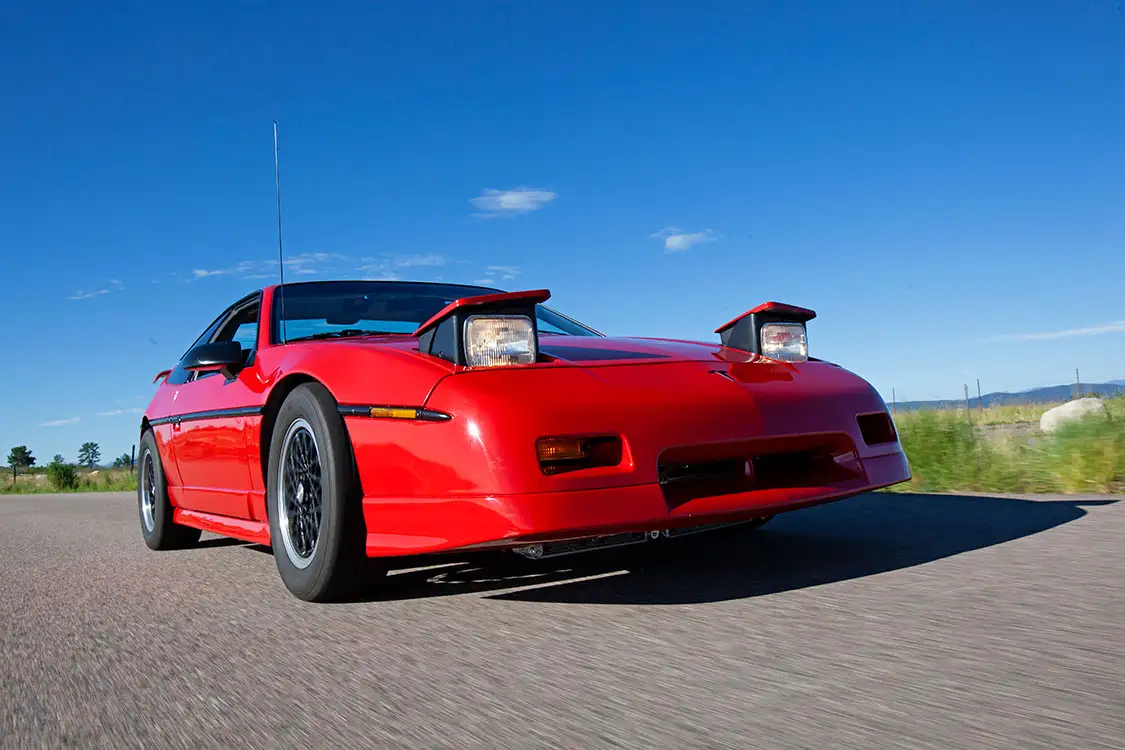
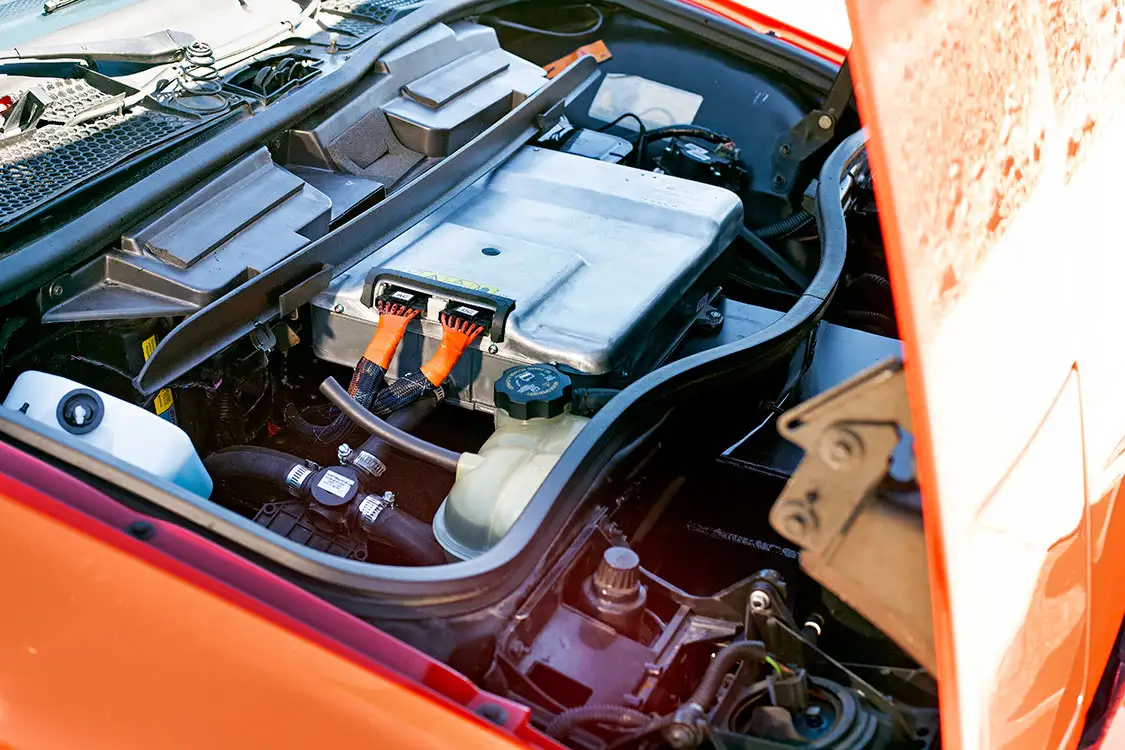
Then, eight years ago, Tim found a superb example in Iowa, completely identical to his car and with only 14,000 miles on the odometer! It was in excellent condition and a super retro ’80s time machine. However, six years after buying it, during a conversation with his nephew Nick Bradley, the idea of converting the Fiero to electric power took root—and Classic EV Conversions was established in Denver. Tim had already converted a ’69 VW bug with his daughter based around a Hyper 9 motor, but this time, he literally meant business!
The reactions range from admiration to offers to purchase the car on the spot.
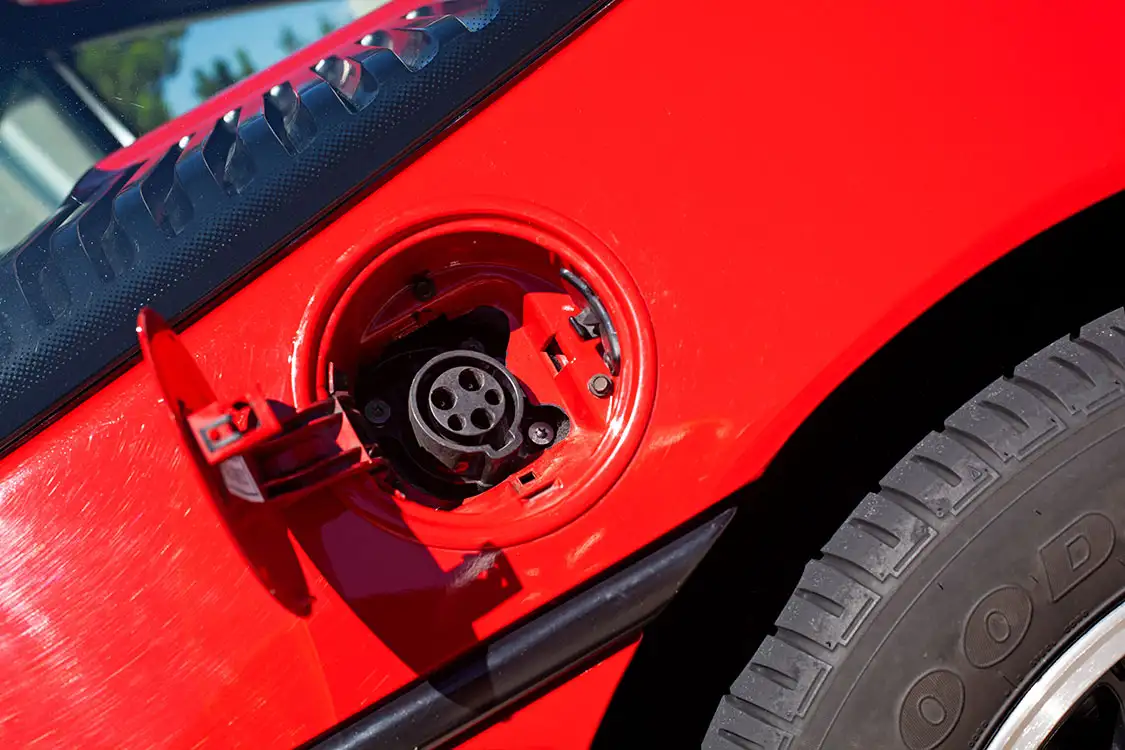

The project began with sourcing parts from a wrecked 2015 Tesla Model S 85D. The Fiero houses the 16-battery modules that were extracted from it. They are now meticulously arranged, with five in the front trunk and 11 in the engine bay. They feed the Model S’s small Drive Unit, powering the rear wheels. The converted Fiero tips the scales at 3,560 pounds, making it 700 pounds heavier than the original stock version. One of the significant challenges was relocating the Tesla charger unit, originally positioned under the back seat of the Model S. The solution was to place the charger unit under the hood. Ditto for the junction box, now relocated in the rear trunk.
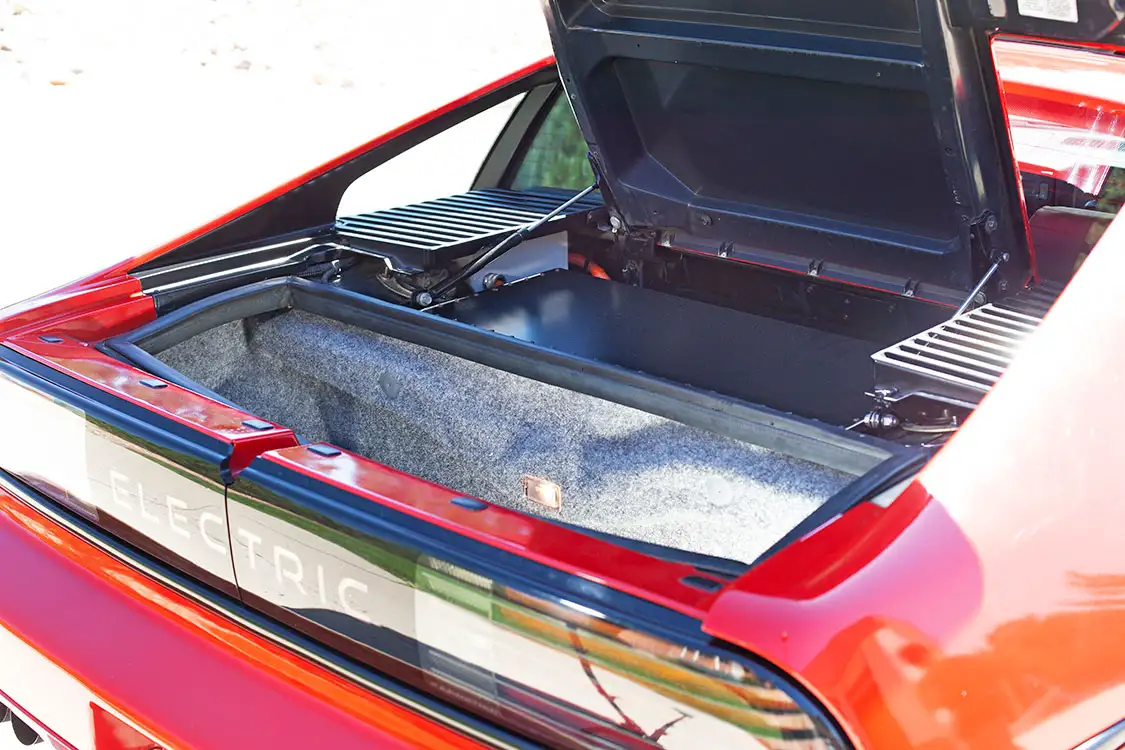
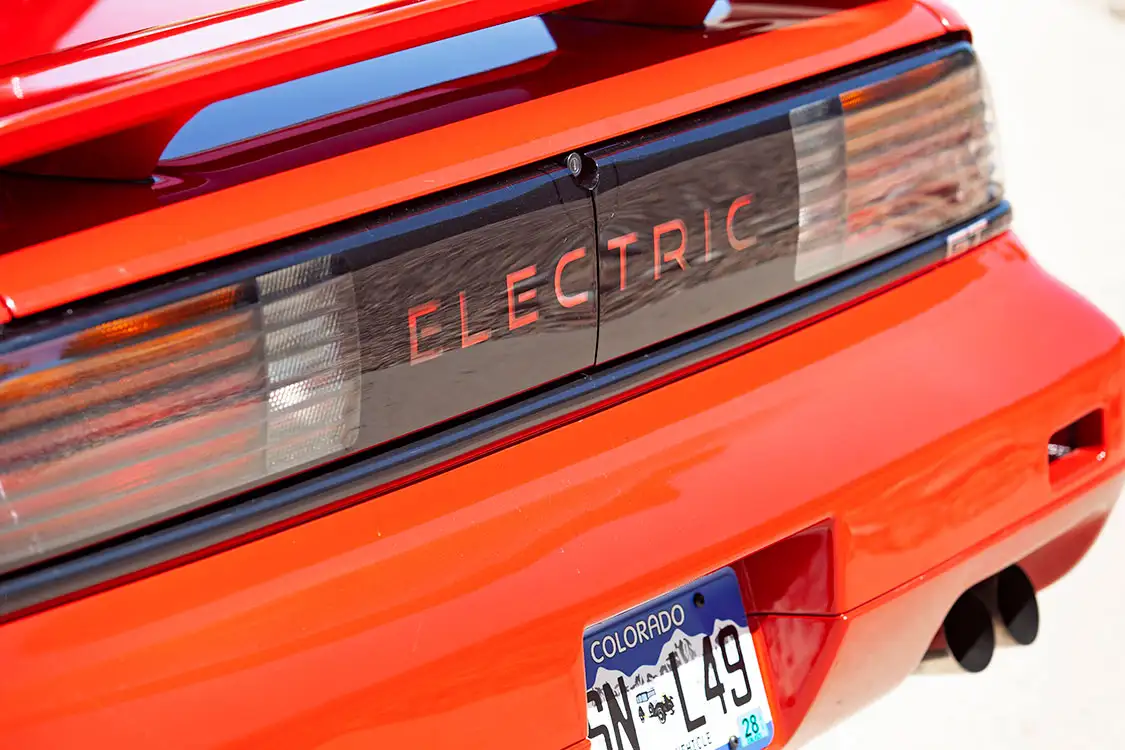
“When we started this project, we took the donor car to pieces, documented it all, and wrote a wiring diagram,” Nick remembers. “We then hopped it over to the Fiero and made it work!”
Tim adds, “We started in March 2020; we took the car apart in one weekend, then the world came to a halt. We didn’t touch it for the best part of a year; then in September 2022, the Fiero was fully working and running, but the actual build was under 180 days.”
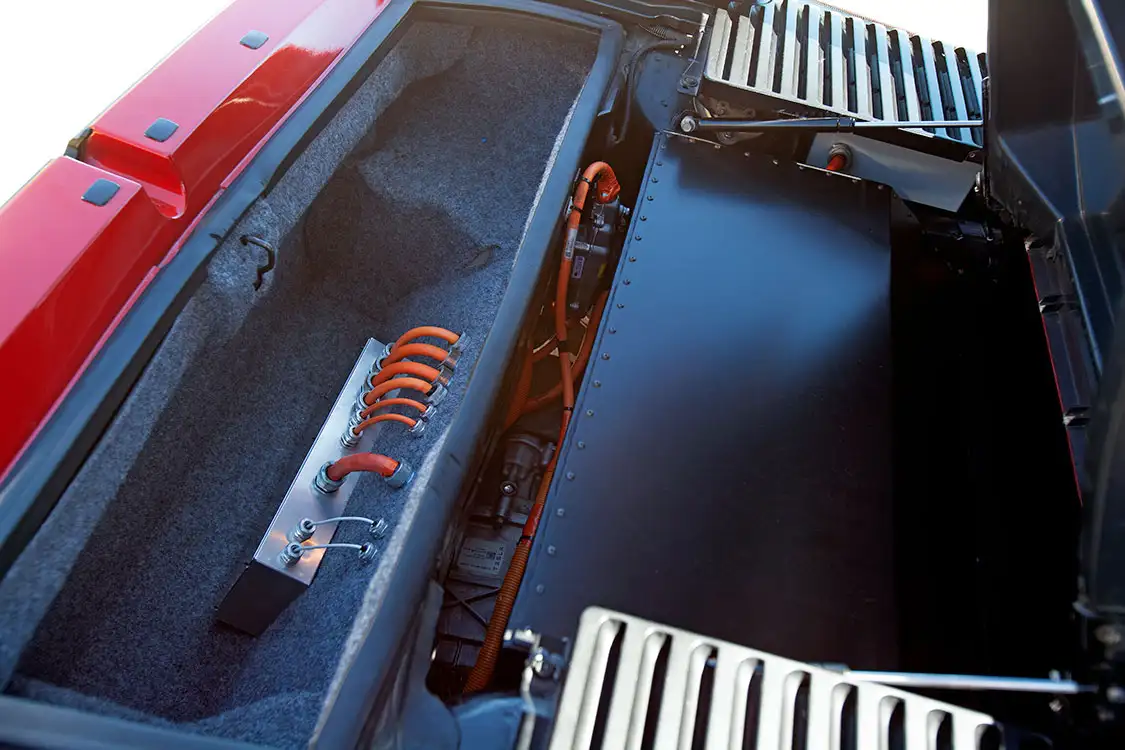
Adapting Tesla’s software and electronics to the Fiero was another hurdle. The Tesla inverter was software-locked, so the team used an aftermarket inverter with open-source control electronics. This allowed customization of power delivery and integration of Tesla’s battery heating and cooling systems, ensuring optimal performance and safety. Despite the additional weight, the electric Fiero performs impressively. The car accelerates from 0 to 60 mph in 4.9 seconds and can reach top speeds of over 120 mph. The Fiero is equipped with a J1772 charging port, which supports up to 10 kW charging. While it cannot use Tesla’s Supercharger network, this setup allows for convenient Level 2 charging, making it practical for daily use.
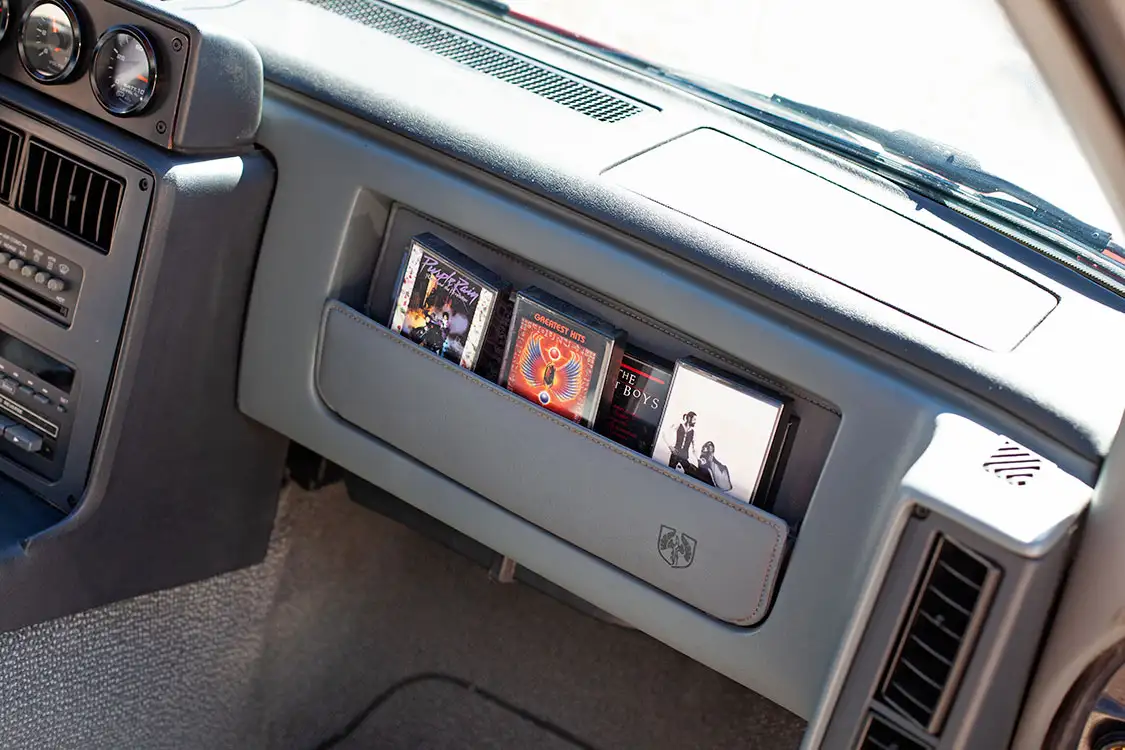
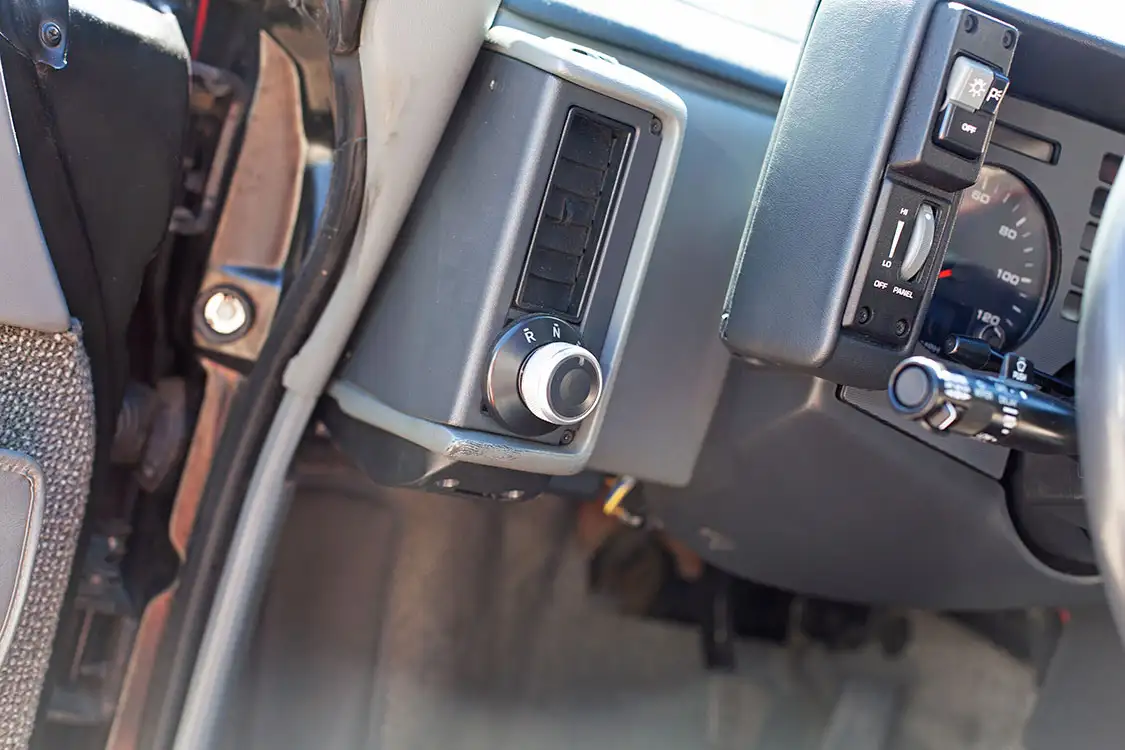

The Fiero’s interior retains much of its classic look while incorporating modern Tesla technology. All gauges were replaced with Speedhut units, and the shifter was replaced with a knob on the left of the dash. These modifications preserve the car’s vintage appeal while offering modern functionality.
The only external indication of its electric nature is a taillight that reads “electric” instead of Pontiac. You cannot even tell from the lack of exhaust pipes. The duo opted to keep the GT-spec quad pipe—even though they are not coupled to anything, obviously! The electric Fiero has become a head-turner, attracting attention at every stoplight.
“Red lights now have people rolling down their windows to ask what it is,” Tim says. “The reactions range from admiration to offers to purchase the car on the spot.”
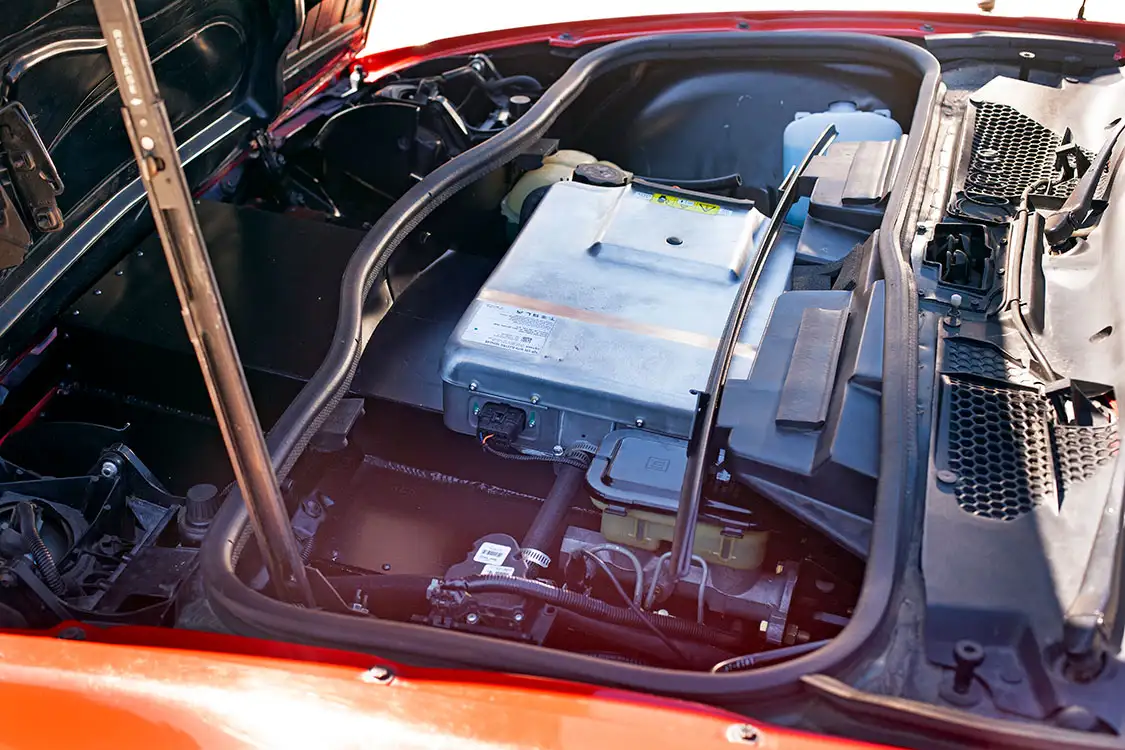
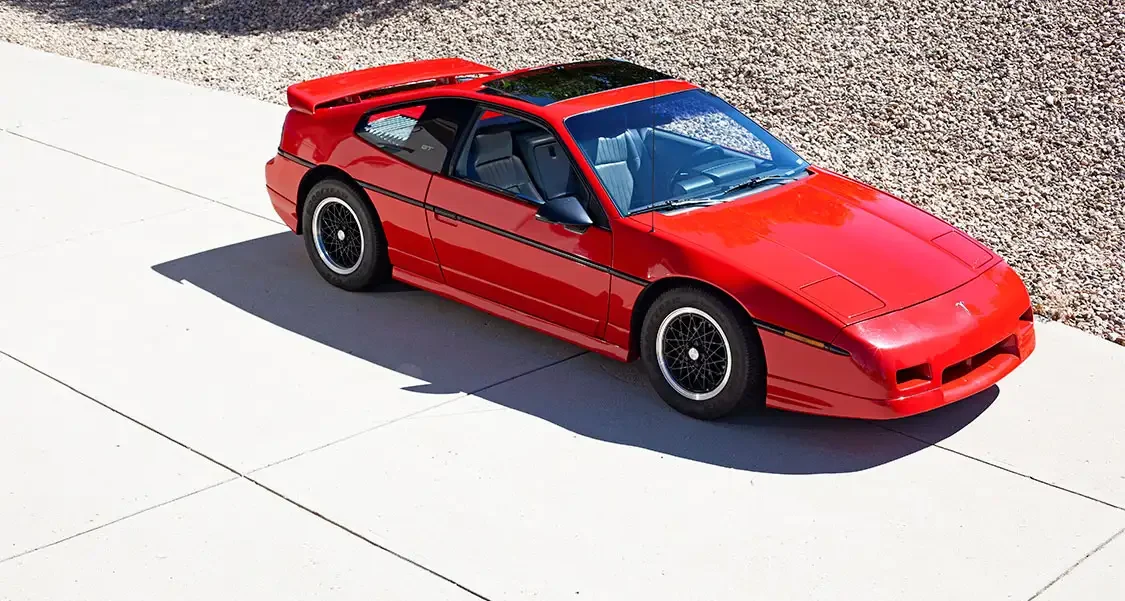
One of the critical aspects of this conversion was ensuring the Fiero handled as well or better than it did in its original form. This required custom rear coilovers specifically designed to manage the additional weight and altered balance of the vehicle. The result is a car that not only maintains the driving characteristics of the original but improves upon them with enhanced stability and control.
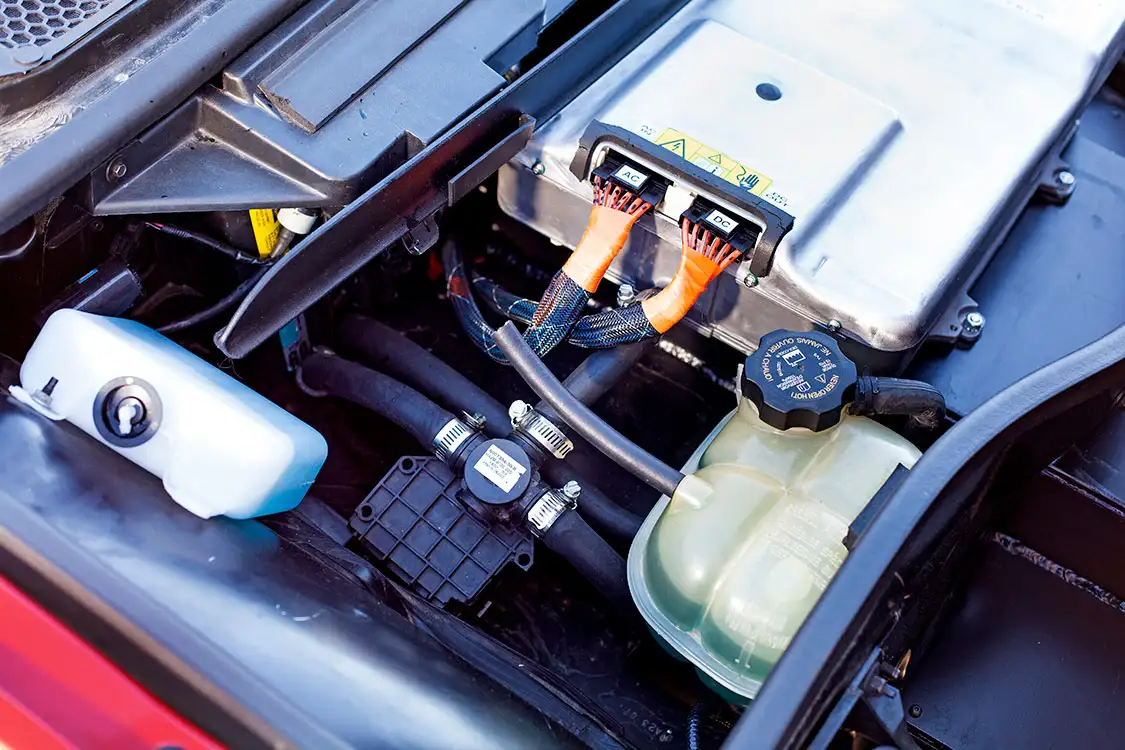
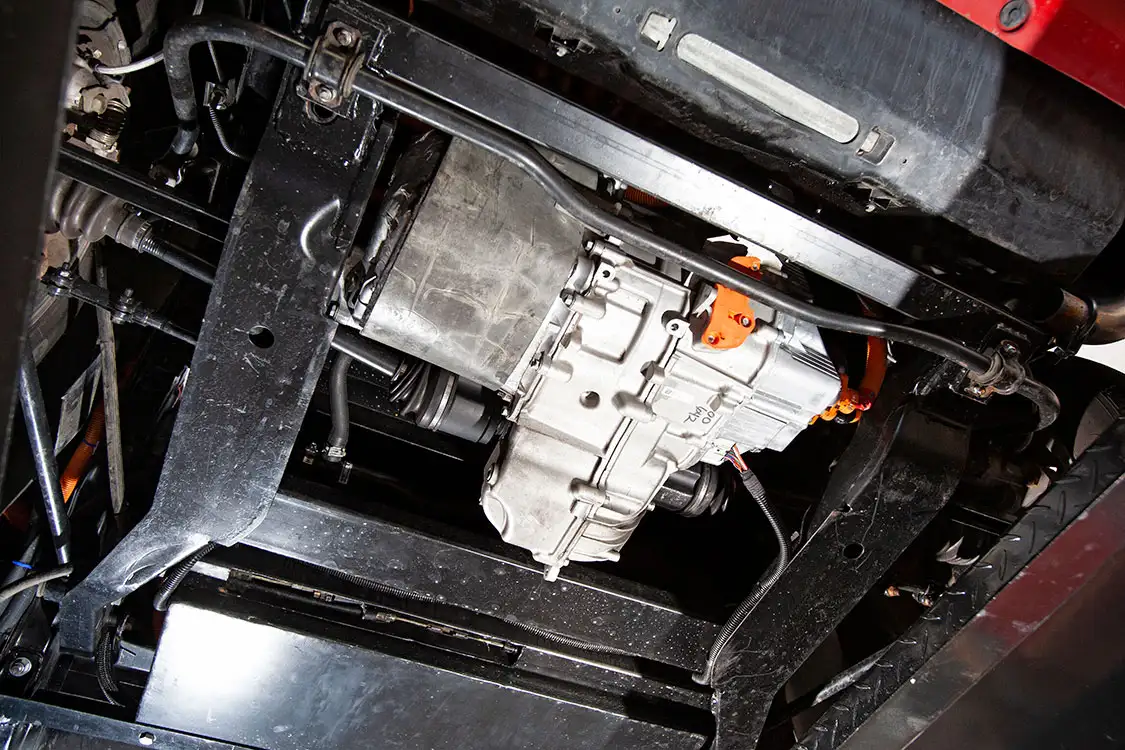
Tim Bradley’s Fiero has proven to be a reliable daily driver thanks to its robust construction and thoughtful engineering. The vehicle’s range ensures it can handle long drives without frequent stops, while its quick acceleration and high top speed make it a joy to drive. The car’s reliability is further enhanced by the use of high-quality components and meticulous attention to detail during the conversion process. The public’s reaction to the electric Fiero has been overwhelmingly positive. Enthusiasts and casual observers alike are drawn to its unique blend of classic styling and modern performance.
Base Vehicle: 1988 Pontiac Fiero GT
Share Link